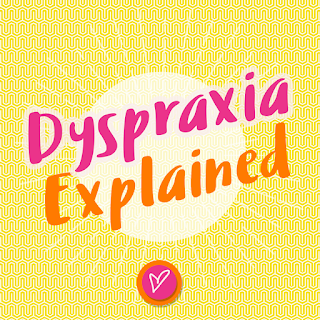I come across people from all over the world when taking on commissions. I've made some beautiful friends and some people who are honestly curious to understand exactly what it is i'm battling on a day to day basis. Sometimes I wish I had it all typed out so when I need to tell someone that i'm running a day or two behind, I can link them to this and maybe they'll understand a little better.
Sometimes I go through waves of non-stop wig making down to a handful of wigs a week. My consistency does rise and fall in waves and perhaps this post will explain it all for you.
There are thousands of articles online explaining what dyspraxia is, statistics, how to get a diagnosis etc but what I think really needs to be explained is what it feels like to have it.
When we carry out a task, our brain sends signals through to our bodies to tell them what they need to do. If you are dyspraxic, sometimes the signals get a little bit jumbled up along the way. They don't quite come in the right sequence. It can affect us physically, mentally, emotionally and even socially.
Try to imagine that your body is a mass of interconnecting wires, beautifully networked, sending information at super-speed, much like a fast internet connection. A dyspraxic mind isn't a neatly organised as those without it, and instead of a harmonic exchange of information, our network is just a big pile of knotted up cables that kind of go roughly where they are supposed to but due to knots and kinks in the cables, the information cannot always pass correctly and and certain things sometimes process super slowly, like we are running on dial-up for a few moments or we temporarily disconnect.
This obviously affects us physically. Things such as walking down a particularly steep hill, or trying to tie a shoelace, or make the bed. Even cutting up vegetables can be a massive ordeal, especially if chopping your fingers off is not top of your priority list. I cannot count the amount of times I have felt like I didn't know what to do with my hands while walking. I couldn't find the rhythm to catch that motion, so while I'm thinking "You need to swing your arms right now" my arms are at my sides like giant bricks that don't move. It makes me feel awkward and self conscious and therefore effects me socially and with my self esteem too. The same goes when I'm talking to someone I'm not used to. Instead of focusing on the conversation, I'm often faced with cycling thoughts of "Your hands look really dumb right now, you should use them" and lose track of whats being said.
In relation to that, it isn't just physical movements that affect me. My speech can often get jumbled up too. Sentences are occasionally spoken out of sequence or I might (rarely) stutter. Making socialising in person quite challenging, especially around new people. I normally have to try and plan exactly what I'm going to say if I have an appointment somewhere, just so when I get there, It doesn't all come out in a giant mess and I humiliate myself.
One thing I particularly suffer with is my spatial awareness. That is, I find it hard to gauge my placement in space. You know how a cat navigates the width of spaces with its whiskers? Well, its like being a cat without that sensory guidance. I bump into things, drop things that are being thrown to me and basically have what everyone else can describe as excessive clumsiness.
Grip can also be affected. We might hold something too hard and give ourselves hand cramp, or too softly and drop everything. This is where it can really upset wig making. Yesterday I ended up with toothpaste in my hair just before bed because I lost grip of my toothbrush, so imagine what it can be like with paintbrush and a pot of glue. It took me til i was 12 to use scissors correctly and just as long to ride a bike without stabilisers.
Dyspraxia is a condition on the autism spectrum. This is because the similarities with sensory problems are often present in those with dyspraxia. I am particularly sensitive to certain textures and sounds. Vomitting might as well be the death of me because the experience is ten times more horrendous than for those without this sensory sensitivity. A few weeks ago I was going through this rather bizarre sensation when working with soy before it had been conditioned. Brushing through the knots with a metal comb literally made my toes curl. You know that nails down a blackboard feeling? Yeah, that. I found that wearing slippers seemed to help so I managed to conquer that one! Sometimes when I am overwhelmed by external stimuli, i literally zone out for a few moments.
Having to concentrate super hard on particular tasks, just to have enough accuracy can be very tiring and sometimes more sleep is required than other people or every so often we reach a day where we just need to flop and recuperate.
People in my real life are often frustrated with me because I hear things very incorrectly. Sometimes my brain processes the words slightly differently like a funny game of chinese whispers "I'll meet you by the tree" might register as "Lets go get some tea!" and while that has made for some hilarious non-sensical conversations, it isn't always super helpful. I find it very hard to separate sounds too. If i'm somewhere where loud music is playing, I more than likely won't be able to hear someone talking to me, because instead of separating the sound, I tend to process one big surge of noise that doesn't fit together. Equally, I sometimes cannot judge my own volume control. I think I'm shouting, but people can't hear what I'm saying. So parties are horrible for me, or anything involving large groups of people, especially when multiple conversations might be going on.
I also have a pretty bad sense of direction. Say "go left" and there is a 50% chance i'll still go right, or just stand there for a moment to think about which way really is my left. Its why I'm pretty sure I will never be able to drive. I'm not exactly a spring chicken but still sometimes have to use that age-old trick of making an L with my hands to get confirmation that really is my left.
When you are a child and your 'muscle memory' is developing; that is for example, learning to tie your shoelaces to a point where you don't need to think about it and you just carry out the action instinctively; your actions are always clumsier and accuracy levels are always low. Through repetition you learn to make things more automatic. Dyspraxics still learn, but that muscle memory takes ten times (or more) repetition for certain actions to become natural.
People with dyspraxia tend to have very active minds and very racing quick paced thought (when it doesn't require processing something to carry out an action) that isn't necessarily very organised. This has nothing to do with intelligence but more to do with the organisation of those thoughts. It is why time management with wig making is a very big problem for me and I am always overconfident in how long it will take me to do something. My perception of time is not very good and while i think i've been working on something for 30 minutes, I might have been going at it for 3 hours. While I love to make plans and lists to help organise myself, i find them very hard to stick to.
The thing is, dyspraxia is not consistent. It flares up. Sometimes there is no problem at all for a good week or two, bar the occasional bumping into things, or not having adequate grip on an object. Other times i'll get stuck in a funk for a few days where making coffee seems like a never-ending battle. Recently I've been battling a particularly long struggle with it. I don't want this post to sound exaggerated because sometimes these things might not occur for a long time, then I might have a day when I have all of these things all at once.
Alex, is a blessing to me. As a highly functioning person with a very fast reflex and problem solving mind, he manages to come up with hacks for me, such as the slipper trick to stop my toes curling or soaking my hands in hot water before i need to do anything particularly demanding of them, just to relax the muscles and make it easier. Even playing games that require a quick reflex to strengthen the receptors to react quicker. It does take an enormous amount of patience to handle the lows and I am very lucky to have found someone who can at times appreciate my weird processing. My family all think he deserves a medal to putting up with me.
That said, being dyspraxic always has its perks too. I problem solve in such a different way to other people that normally, when people are struggling to come up with a solution, I'll suggest something so-out-of-the-box from the norm that it will work. People with dyspraxia tend to be creatives because of the strange thought patterns. We're more sympathetic towards others and have a great deal of empathy. And of course, while we might seem weak to some people, because dyspraxia is something that cannot go away and it literally affects every single action we carry out, we are very strong people too for always fighting. Our level of tolerance can never be beaten. Sometimes our mistakes can make for very funny conversations or our clumsiness can be deemed as cute (when it isn't being super frustrating)
Here I have only spoken about the things that affect me personally. Dyspraxia's spectrum is vast and depending on what parts of the brain are affected, some are more functioning than others. While others with dyspraxia might suffer from things such as problems with language, or balance and others might be so highly functioning that they can drive, this is just what i suffer with personally. I am capable of some things other dyspraxics cannot, such as speaking different languages, ice skating and roller blading but they might be able to cook without fear of cutting up their fingers or drive without risk of causing a massive accident.
I hope this helps people understand what dyspraxia really is and I will probably alter and add to this post a lot over time but if you have any questions about it, please do ask. I'm more than happy to explain c: <3









Post a Comment